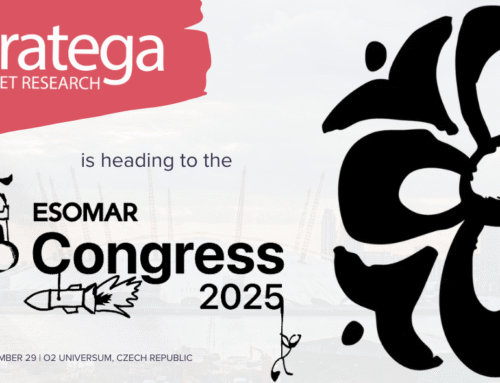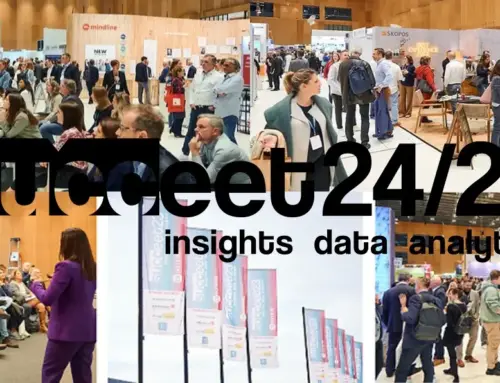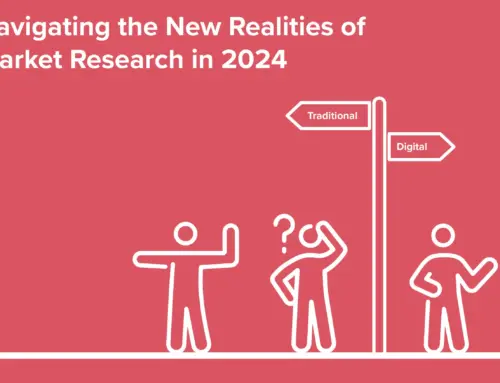Market research comes in a variety of shapes and sizes, many of which rely on cryptic names to denote their purpose. One such category of market research comprises the three-letter acronyms B2B and B2C. Before we carve out the main differences between the two, we may as well set aside a few lines and explain what they mean.
B2B stands for ‘business to business’ and describes a situation where one business reaches out to another business with a marketing campaign to improve its product or service. It is almost like a formal conversation between two peers, only that one of those peers is picking the other peer’s brains about things and there is a middle-man in the form of a B2B market research agency. In Poland, the said brain-picking may include in-depth interviews with managers, surveys with decision-makers, and focus groups involving different staff tiers, among other formats.
B2C, meanwhile, stands for ‘business to customer’ (or ‘business to consumer’) and denotes a scenario in which the same business, instead of another business, reaches out directly to the consumers of its product or service with very much the same intention. In this case, too, the actual study may take the form of quantitative surveys, in-depth interviews or focus groups, among others.
But, if B2B and B2C market research are so similar in terms of structure, why would they differ significantly beyond that? A few factors drive that disparity, and we will try to cover some of them below, in our breakdown of the top 5 differences between B2B and B2C market research.
1. Complexity of methodology
Not surprisingly, communicating with a customer isn’t the same as it is with an industry insider. That is why most B2C market studies rely on a mix of different methodologies to effectively collect feedback from users, frequently involving stimuli and other ways to keep the user focused throughout the session.
A B2B market research agency in Poland, for its part, will have to employ a more subtle, behind-the-scenes version of surveying in order to produce a more tangible (and business-incorporable) outcome. Essentially what it means is that, as far as B2C market research is concerned, the discussion is more likely to revolve around more abstract themes with no clear goal to arrive at, but rather loosely testing the waters and tapping into whatever curious grooves are discovered along the way.
2. Treatment of sensitive information
Another important difference between a business and a customer is that a business can bring more to the table for the company picking their brains about things, but they also have more to lose. A B2B market study will by default be more precise and to the point, because the person on the other end has specific knowledge that we want to get their insights on.
And if we were to add to that the fact that business users are often in possession of company secrets and other sensitive information that may give them an important edge over competitors, the difference in approach and collecting data by a B2C and B2B market research agency becomes inevitable.
3. Target pools & audience
Knowing that both B2B and B2C market research aim for different outcomes, it’s only logical they will rely on different target pools and audiences to reach their final objectives. From the point of view of a typical B2B market research agency in Poland, a B2B study is often more condensed in that it typically involves smaller pools of participants typically interviewed either face to face or over the phone (recently also via software platform). B2C market research can be more generous when it comes to sample volume that is either broken down into a number of in-depth interviews or assessed in bulk by scheduling back-to-back focus groups.
4. Timing
B2B market research participants tend to be very busy people. A B2B market research agency, in Poland or any other country in the free-market world, must know that it may not always be easy to get a hold of industry insiders during normal working hours and they are less likely to be willing to commute places for the sake of a market research study. Back in the day, that used to make the logistics behind this type of endeavors rather complicated for B2B market research agencies, but smartphones and the world wide web have allowed for more flexibility. To this day, though, market-gauging companies must factor in the busy schedule of their counterparts, which is less of an issue in B2C market research where the time frame can include weekdays and run up to as long as 180 minutes for some focus groups.
5. Compensation
Lastly, there’s one thing that we haven’t talked about and that ultimately drives every business out there, and that’s money. If there is something that sets aside B2B from B2C market research before the moderator even hits the record button in a room (or chat room), it is the reward. It is reasonable to assume that, since there are more consumers than there are businesses, there is less supply of the latter, making it a more in-demand group and also one that’s not as easily impressed. The rule of thumb for any B2B market research company in Poland has always been not to expect industry insiders to settle for the same amount of compensation a regular consumer will settle for. On the upside, this extra gain for B2B participants is also bound to reflect on their increased commitment to ensure quality feedback.
Hopefully, this breakdown has given you a better understanding of some of the features that make B2B and B2C market research unique, and you will find them handy when choosing the best approach to your next market research project in Poland and beyond.





